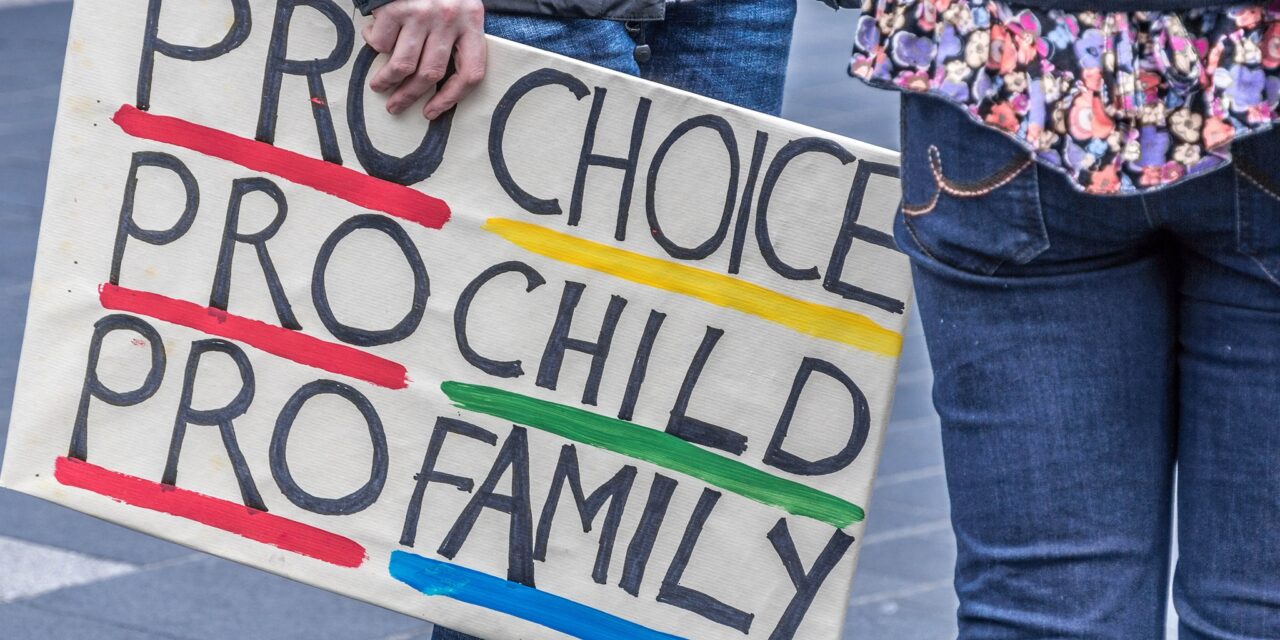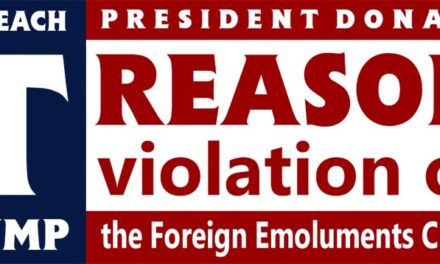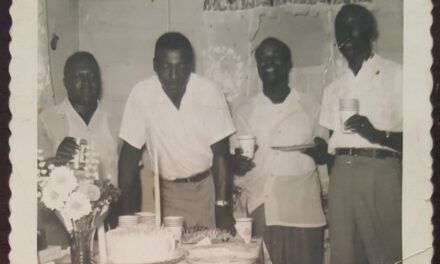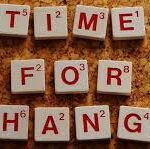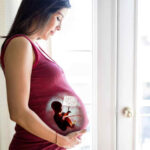“I do not believe that just because you’re opposed to abortion, that that makes you pro-life. In fact, I think in many cases, your morality is deeply lacking if all you want is a child born but not a child fed, not a child educated, not a child housed. And why would I think that you don’t? Because you don’t want any tax money to go there.
That’s not pro-life. That’s pro-birth. We need a much broader conversation on what the morality of pro-life is.”
Sister Joan Chittister
Benedictine Nun, Author and Speaker
If you are not pro-choice, then are you pro-life? Or are you pro-birth?
Consider that for a moment because I may ask you again.
In the meantime, here are a few things that I’d like for you to consider.
Let’s start with Friday, September 18, 2020.
That was a heart wrenching day for many Americans… many of us liberal thinkers… many of us who are advocates and activists… many of us who have been on the receiving end of discrimination and prejudice… and even for a minority of conservatives and right-leaning idealogues.
Friday, September 18, 2020 was the day that Supreme Court Justice Ruth Bader Ginsburg left this earthly realm. What a loss her passing was to our oppressed, to our disenfranchised, to our nation and to humanity.
Justice Ginsburg was a known champion of women’s rights, and a warrior against gender discrimination in any form. (This means that she did champion the cause of men who were victims of sexual discrimination.) She stood firmly for the rights of citizens with disabilities and she decried racial animus and bias.
She will probably be most remembered for her stance on the reproductive rights of women… specifically, the right to terminate pregnancies that were unplanned and for which they were ill-prepared. While she was not on the bench when Roe v. Wade took center stage, she is most remembered for her views on, and advocacy for, abortion rights.
Coming from this pro-choicer, Justice Ginsburg’s death and the vacancy that it left on the US Supreme Court, may leave thousands of women without the right to avail themselves of an abortion if they feel that it is their personal best course of action.
I am staunchly pro-choice, and that has all to do with my background and how I was raised. My mother, whom many would consider a feminist, has always felt that this should be a woman’s choice… her own decision. We often had discussions about the ills of abortion, but we also discussed why the right to have one was necessary in our society.
In addition, I grew up in the Bronx, a borough of New York City and… a definitively urban place.
Many refer to the Bronx as an inner city. So that you know, the term “inner city” is never used to denote a thriving and productive community. The term “inner city” conjures up images of walk-up tenements; street corners teeming with gaggles of able-bodied, yet unemployed minority youth; the most in-your-face manifestations of drug and alcohol addiction; and sub-standard… (let’s just be honest)… everything.
While this was home to me, and while I chose to return to the New York inner city community of Harlem for my internship and residency in Obstetrics and Gynecology, I understood how the world saw the women that I cared for. These were women who lived on the fringes of society, and who had little in the way of resources, opportunity or hope.
Many were women who knew that they were poorly equipped to usher a new life into this world. Many were already overwhelmed with the care of other children and felt that they would not adequately be able to care for yet another child. They knew that they did not have enough of anything to parent successfully.
There was not enough time… not enough space… not enough money… not enough safety… just NOT ENOUGH… and they knew the difficulties that the future would hold.
Other women whom I served were suffering from addiction and/or alcoholism and understood that their demons would make effective parenting virtually impossible.
There were also teenage mothers, often as young as 13, who could barely take care of themselves, much less another completely dependent life.
And there were women who were the victims of “intimate partner violence”, and who were ensnared in the web of an abuser. They understood that a pregnancy and new child would increase their risk for abuse. They understood that if they wanted to escape their circumstances (and escape is exactly what you do when your partner has exhibited the potential, and even, the desire to kill you), doing so with a dependent child in tow would make leaving that much more risky… that much more unsafe… that much more likely to fail… that much more likely to end in further violence and possibly their death.
And they knew that this partner would be as likely to abuse their child, once it was born.
They knew that they were in situations in which there would not be much in the way of support. They felt that they could not establish the stability, structure and safety that all children need and deserve.
A small minority of patients that I had the privilege to care for were those women who’d been the victims of rape and sexual assault. Some of these women conceived as a result of their assault. These women knew that, in addition to everything else, they might be unable to bond with and love this child, who would be a daily reminder of the violence and indignity that had been visited upon them.
I even saw those patients for whom carrying a pregnancy to term would exacerbate a chronic medical condition that had the potential to end their lives. I saw brittle diabetics, who’d suffered from juvenile diabetes since childhood, and who were likely to deteriorate as their pregnancies progressed. I watched one woman die of such complications at 32 weeks of gestation. Her baby went on to be born and is now being raised by a relative.
She never even got to meet her daughter, whom she affectionately named Faith.
I saw women who were diagnosed with breast cancer after conception. In case you didn’t know, the hormonal milieu and surges during pregnancy feed breast cancers, which are hormonally mediated. These hormones make breast cancers far more aggressive. The diagnosis of pregnancy is a virtual death sentence for women with active breast malignancies. Is it fair that these women should be made to carry such a pregnancy to term, for which they will not live to raise the child?
I commend each and every one of the women that I served, and who decided under very adverse circumstances, that terminating their pregnancies would be the most prudent and the most necessary course of action. I commend them for taking an honest look at their situations and for exhibiting the courage to make some very tough decisions.
In the four years of my residency and in which I learned to perform abortions, I observed the solemnity, and sometimes fear, that my patients faced when deciding whether or not to end their pregnancies. Many queried whether or not they were doing the right thing. Many queried whether or not this made them bad people. Many struggled with guilt just for contemplating an abortion, and the guilt often grew that much more after they’d undergone the procedure. Many will forever wrestle with the guilt and shame of this decision as well as the weight of their action, and never find a way to forgive themselves for having ended what God had so perfectly created.
I share this for those people who feel that women are flippant about terminating their pregnancies; or that, worse yet, they use abortion as a form of contraception. That is typically not the case. Abortion is almost always a difficult and painful choice, with the added burden of having only a brief window of time in which to make and execute an irreversible decision.
Some of you might say,
“These women should just have their babies! How dare they take a life! They should just put them up for adoption!”
Yes. The “Adoption Option”. It’s just that simple, right?
If you believe that it is, “… just that simple…”, you would be wrong… dead and absolutely wrong. Adoption is neither a cure-all, nor a panacea, for the pregnancy-conflicted woman. This is especially true for women of color.
They know that their babies will be among the last to be adopted, if they are adopted at all.
I mean, come on. Let’s face it. Many Americans would rather leave the United States in search of a baby to adopt than to adopt from within their own communities. Asia and Africa are among the most common places to find a child to adopt and to bring back to the United States. Why families choose to do that when there are thousands of American children waiting for a family to take them in, is beyond me.
Statistics tell us that in 2019, there were more than 428,000 children in foster care in the good old US of A. According to the Adoption Network, about 135,000 children are adopted in the US each year.
Stop for a moment and consider what “each year” means. That means that as numbers of children being put up for adoption rise, on average, there are only about 135,000 who will be successfully placed. This implies that the deficit between those awaiting adoption and those actually being adopted will continue to increase.
Further, the number of children in foster care does not take into effect the number of children who will be placed with private adoption agencies, so that 428,000 is likely to be much larger.
The Adoption Network goes on to tell us that,
“Among these children, males outnumber females, African American children are disproportionally represented, and over half are 6 years old or older. More than 60% of children in foster care spend 2-5 years before being adopted. Some never get adopted.”
“In 2007, US families completed 19,942 international adoptions. Some of these figures have decreased, not because Americans started adopting American children, but because international adoptions became more restricted.”
As Donald Trump seeks to confirm Amy Coney Barrett, a conservative jurist, we all wonder whether or not, under her tenure and that of this very conservative Supreme Court, Roe v Wade will be overturned. It is very possible that her confirmation may mean that women will lose access to safe terminations of pregnancy.
It has also been said that due to Barrett’s personal predilections and her religious beliefs, she might uphold laws that would effectively eliminate contraceptive options. She is a devout Catholic, has 7 children and might support laws that would restrict a woman’s right and access to obtain and to use birth control.
How hellacious might that become? What would women have to look forward to? Well, for starters, there would be:
• Little or no access to contraception
• Countless unplanned and unwanted pregnancies
• No access to abortions
• A nation that doesn’t want to finance the care and raising of other people’s children
Here’s the hell that is likely to ensue following this very perfect storm:
Women will either have their babies and struggle to raise them; or seek out illicit abortions which will be fraught with complications and danger. Should they choose to carry and deliver their babies, for those who are financially ill-prepared to care for a child (or to care for an additional child), what will be the potential outcomes for them and their child(ren)?
Well, we already know that this scenario increases the risk of the entire family living in poverty. This means that they are also likely to live in places where schools are tapped out, teachers are burnt out and many of the students will dropout.
We already know that the lack of access to education, coupled with substandard housing conditions and crime, will increase the likelihood that children born into such communities will find their way into the school-to-prison pipeline; and will then cycle endlessly through the criminal justice system at a rate far greater than that of their white counterparts.
How many of you want to invest in the health and well-being, education, housing and safety of the aforementioned children? Are you willing to contribute to optimizing the quality of life for these fellow citizens so that they are living and not merely subsisting?
Are you willing to pay more in taxes for their food, clothing, shelter, education and healthcare?
If not, then are you willing to adopt these children, especially the black and brown ones? For those families traveling to Africa to adopt a little black child, are you willing to confine your efforts to the states and find a child of color there?
I feel so strongly that this should happen, that I believe that it should be illegal for any family to go abroad for an adoption, as long as hundreds of thousands of American children need to be adopted. Until 99% of children awaiting adoption are placed with loving families, I feel that no American family should be allowed to adopt abroad and bring that child back to the United States.
It is clear that this is a complex issue which involves more than just the notion of overturning Roe v Wade. It is more than just a debate about when life begins and whether or not an embryo or early second trimester fetus has rights.
It is an issue which begs us to explore the many ways in which people suffer, and the many societal ills that can make their suffering indefinite. It is an issue that asks that we re-examine who we are as a nation. It asks whether or not we are sincere in the notion that every man has the unalienable right to “…Life, liberty and the pursuit of happiness…”.
Are we willing to embrace the mantra set forth by the late Justice Ginsburg when she opined,
“Women’s rights are an essential part of the overall human rights agenda, trained on the equal dignity and ability to live in freedom all people should enjoy”?
Are we willing to remove barriers to those rights so that pregnancy and the birth of a child do not present overwhelming challenges to the individual(s) raising that child once it is born? Are we willing to provide equity and opportunity for that child once it is born? Are we willing to invest in a positive future for that unborn child and thousands like him or her?
I will conclude this essay with an observation from one of my most trusted friends,
“We need to make things so that abortions are not needed. Let that be your solution.”

